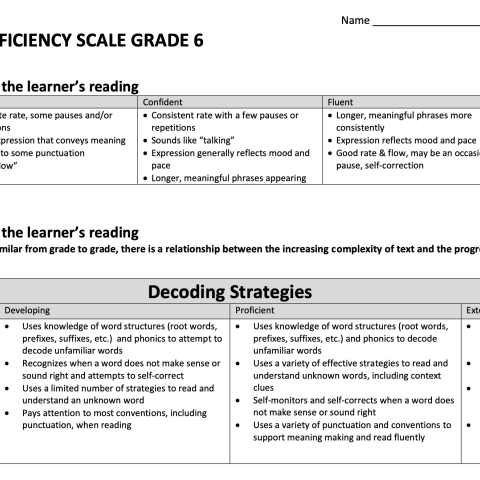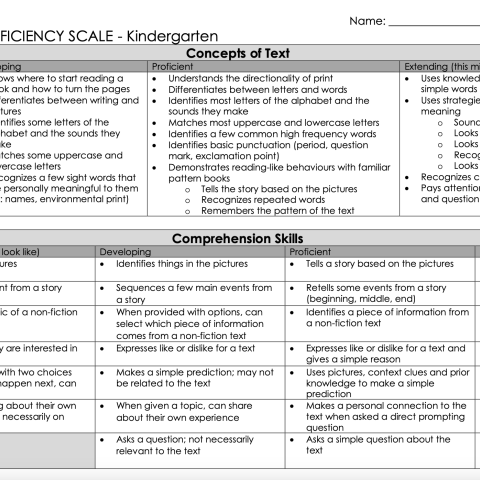Our Path Ahead for Supporting Literacy
The months of May and June is an exciting time where we start to put plans in place for the upcoming school year.
During our May staff meeting, we took time to share the different literacy assessment tools being used in classrooms from Kindergarten to Grade 7. These tools help us better understand where our students are in their reading at the beginning of the year. When we provide a reading assessment for all students, we gather valuable data that informs the design of our literacy programs and helps us identify the supports students may need throughout the year.
Our goal is to ensure that every learner has the opportunity to reach a proficient level, as defined by the proficiency scales. We also hope that this discussion provided staff members with an opportunity to explore different approaches to reading assessment and identify potential staff they could collaborate with the school.
For this activity, staff were asked the following questions:
1) What are you already doing to gather data about your student's abilities in reading at the start of the year? For example the SPARK, DART, EPRA, FIEPRA. What have you found effective about the assessment you are using?
2) Are there any reading assessments out that there you would like to learn more about?
3) What supports would you like to see put in place to help us better understand where are learners are in their reading at the start of September?
This exercise provided us with valuable information about the variety of reading assessment tools currently used by teachers in the school, including the DART (District Assessment of Reading Team), DIBELS (Dynamic Indicators of Basic Early Literacy Skills), SPARK Assessment, and the Foundation Skills Assessment (FSA), among others. Some teachers who were not familiar with some of the reading assessment tools discussed in this exercise expressed that they would like to work together with colleagues when thinking about the year ahead and how they could be implemented for their learners. What was particularly interesting during our conversation is the number of Early French Immersion teachers who would like to learn more about what other assessment tools are available for teachers to help them assess their learners in their French reading and we are looking to work with our district teacher consultant to learn more about what might be available to our team.
When it came to supports teachers would like to see put in place to learn more reading assessment and our student's reading levels, we received some valuable feedback such as:
- working together to address specific interventions for those still missing letters names and sounds in primary and intermediate
- working toward a school wide reading assessment that all students are part of
- parent sessions for literacy - how to support their children at home with and without a device
- time to collaborate and work on grade level assessments
- pull-out groups with resource teachers with a variety of students from similar grades who need direct small-group teaching targeting basic phonics/reading skills (e.g. French UFLI) for lower intermediate / intermediate grades
While we recognize that teachers are already using different of assessment tools to gather data on their students at both the beginning and end of the year, we also discussed how it may be helpful to look at sharing students' reading progress using our School District’s Reading Assessment Proficiency Scales.
Please refer to the attached photos of the K–2 and Grade 6 scales. By using these Proficiency Scales, we hope to provide consistent feedback for all learners. This will help us better understand each student’s current reading level and identify the supports they need throughout the year to reach their full potential.

